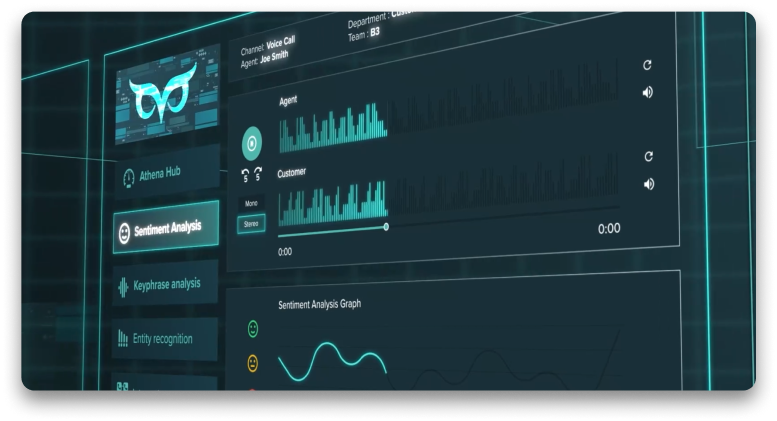AI Automation
In the last year, Artificial Intelligence has proven to be an invaluable resource for businesses looking to optimise their efficiencies, and AI Automation is one of the most promising areas within this field of innovation.
Instead of manually examining data, professionals can employ automation techniques to streamline tasks and process a larger volume of information. With the integration of AI automation methods, automation becomes more intelligent, offering additional advantages.
While artificial intelligence may seem like a competitor to human intelligence, it actually operates in tandem. Instead of replacing the need for people, artificial intelligence enhances human productivity.
To maximise the benefits of the latest AI automation tools, it is beneficial to understand how they contribute to automating business tasks. In this article, we’ll explore the realm of AI automation, examining its practical applications across various industries. You will gain insights into what AI automation entails, how companies currently leverage it, and some of its potential impacts on the future of work.
What is AI Automation?
AI automation refers to the use of artificial intelligence (AI) technologies to perform tasks and processes without direct human involvement. The goal is to streamline and optimise workflows, increase efficiency, and reduce the need for human intervention in repetitive or time-consuming tasks.
But isn’t AI the same as automation? Not exactly. Automation employs robots to carry out predefined, rule-based instructions set by humans, reducing manual effort in routine tasks. However, if the task goes beyond the programmed instructions, robots may struggle to complete it.
Integrating AI into robotic process automation and other automation technologies enables robots to interpret the general guidelines provided by humans and chart their own course to achieve the objective. The Machine Learning capabilities within AI enable it to learn from its actions, continually improving performance.
In essence, here’s how this fusion creates intelligent, AI automation:
- AI utilises Machine Learning and intricate algorithms for analysing both structured and unstructured data, embodying the cognitive decision-making aspect of IA.
- BPM (Business Process Management) automates workflows, establishing connections between people and systems.
- RPA (Robotic Process Automation) handles straightforward administrative tasks, such as form filling and data extraction.
As you already know and as we have explored in previous articles, Artificial Intelligence (AI) as a technology encompasses machine learning (ML), natural language processing (NLP), computer vision, and deep learning techniques.
What are the benefits of AI Automation?
Cost Reduction and Enhanced Productivity
Intelligent automation platforms leverage extensive data and precise calculations to automate systems and processes, leading to accelerated production. The incorporation of data-driven analysis ensures accuracy, while the scalability offered by intelligent automation enables increased productivity without compromising quality or burdening the existing workforce. Business leaders benefit from higher production yields and improved return on investment (ROI), as intelligent automation becomes a key driver of operational efficiency.
Enhanced Accuracy Through Consistent Processes
The integration of artificial intelligence into decision-making processes is a cornerstone of intelligent automation. This approach ensures a consistent and reliable execution of repetitive tasks, enhancing overall accuracy. By relying on standardised processes, intelligent automation minimises errors and variations, contributing to the delivery of high-quality outcomes across various operational aspects. This consistency becomes a crucial factor in achieving and maintaining excellence in business operations.
Improved Customer Experience
Swift and reliable delivery of high-quality products to the market, coupled with prompt responses to customer queries, forms the basis of an improved customer experience. Intelligent automation plays a pivotal role in streamlining processes, reducing lead times, and enhancing overall product and service quality. The positive customer perception generated by Customer Experience automation fosters customer loyalty, creating a competitive advantage for the company in the market.
Confident Addressing of Compliance and Regulations
In industries subject to specific regulatory policies, intelligent automation becomes a valuable ally in ensuring compliance. Leveraging its task automation features, intelligent automation establishes a consistent and reliable approach to meeting regulatory requirements. By adhering to regulations, businesses not only avoid potential legal consequences but also mitigate risks associated with non-compliance. This confidence in addressing compliance and regulations provides a secure foundation for sustainable and compliant business operations.
What industries use AI Automation?
Imagine a scenario where a customer encounters an issue and seeks an immediate resolution. AI-powered solutions in the context of Customer Service automation can swiftly address customer complaints or escalate more complex cases to a service agent, ensuring a streamlined journey toward resolution for your customers.
AI Automation plays a pivotal role in digitising the loan process and streamlining administrative tasks such as know-your-customer (KYC) ID verification and anti-money laundering (AML) reporting. AI algorithms operating in real-time can analyse transaction data, identifying unusual patterns and potential fraudulent activities.
Insurance
In the realm of insurance, IA proves invaluable in streamlining routine tasks like underwriting, claims processing, regulatory compliance, and fraud detection. Digital workers, empowered by AI, automatically collect data from disparate sources and send pertinent notifications to agents, expediting the claims decision process.
Manufacturing
Leveraging AI-backed analytics, manufacturers can mitigate unplanned downtime, enhance efficiency, and elevate product quality. AI’s analysis of supply chain data optimises inventory levels and distribution routes. Additionally, IA contributes to predictive maintenance, pinpointing factors causing slowdowns and minimising yield losses.
Automation facilitates patient appointment bookings, while clinical staff benefits from organised patient medical records and histories. AI steps in for medical diagnoses, analysing images like X-rays and MRIs to help doctors identify issues promptly, ensuring patients receive the right treatment without delay.
5 AI Automation Features
Chatbots for Instant Support
AI chatbots, also known as AI Conversational Bots, serve as virtual assistants that offer immediate support to customers. They can understand and respond to common queries, provide information about products or services, and guide users through troubleshooting steps. By operating 24/7, chatbots ensure customers have access to timely assistance, enhancing overall satisfaction and reducing response times.
Automated Ticket Routing and Resolution
AI workflow automation, streamlines the customer support ticketing process. It categorises and prioritises incoming tickets based on their content, urgency, or complexity. Automated systems, like Connex One’s Flow, route tickets to the most suitable support agent or team, ensuring that customer issues are addressed promptly and efficiently. This approach optimises the resolution process and contributes to improved customer service.
Personalised Customer Interactions
AI algorithms analyse customer data, including past interactions, preferences, and purchase history, to personalise customer interactions. By offering tailored recommendations, product suggestions, and targeted promotions, businesses can create a more individualised and engaging customer experience. This personalization not only enhances customer satisfaction but also contributes to increased loyalty and repeat business.
ASR IVR Menus
ASR technology integrated into IVRs enables accurate transcription and understanding of spoken words during customer phone interactions. This improves the clarity of communication and allows for seamless navigation through IVR menus. Additionally, ASR facilitates automated data entry, reducing the need for manual input during customer calls. This enhances the efficiency of phone-based customer service and contributes to a smoother overall customer experience.
Automated Customer Feedback Analysis
AI automation tools, particularly those provided with Sentiment Analysis and Speech Analytics features, automatically analyse customer feedback gathered from various channels, such as surveys, reviews, and social media. Using interaction analytics, these tools extract valuable insights and sentiments expressed by customers. Businesses can swiftly identify areas for improvement, address concerns, and make data-driven decisions to enhance overall service quality based on customer input. Automated feedback analysis ensures a proactive approach to customer satisfaction and helps businesses stay responsive to evolving customer needs.
If you enjoyed reading this, you might also be interested in…
NLP (Natural Language Processing)
Chabtot
AI Chatbots
Call Centre AI



